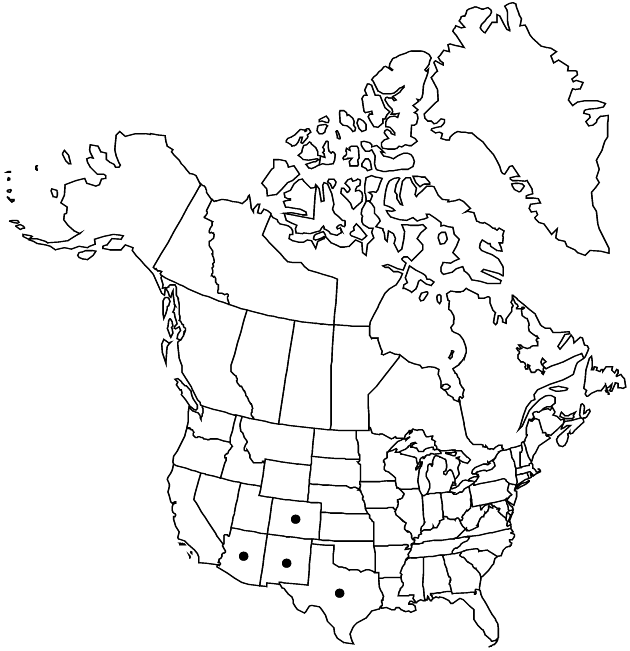Difference between revisions of "Senecio wootonii"
Bull. Torrey Bot. Club 25: 122, plate 331, figs. 1, 2. 1898.
FNA>Volume Importer |
imported>Volume Importer |
||
| (3 intermediate revisions by 2 users not shown) | |||
| Line 11: | Line 11: | ||
|name=Senecio anacletus | |name=Senecio anacletus | ||
|authority=Greene | |authority=Greene | ||
| + | |rank=species | ||
}} | }} | ||
|hierarchy=Asteraceae;Asteraceae tribe Senecioneae;Senecio;Senecio wootonii | |hierarchy=Asteraceae;Asteraceae tribe Senecioneae;Senecio;Senecio wootonii | ||
| Line 35: | Line 36: | ||
-->{{#Taxon: | -->{{#Taxon: | ||
name=Senecio wootonii | name=Senecio wootonii | ||
| − | |||
|authority=Greene | |authority=Greene | ||
|rank=species | |rank=species | ||
| Line 50: | Line 50: | ||
|publication year=1898 | |publication year=1898 | ||
|special status= | |special status= | ||
| − | |source xml=https:// | + | |source xml=https://bitbucket.org/aafc-mbb/fna-data-curation/src/2e0870ddd59836b60bcf96646a41e87ea5a5943a/coarse_grained_fna_xml/V19-20-21/V20_1224.xml |
|tribe=Asteraceae tribe Senecioneae | |tribe=Asteraceae tribe Senecioneae | ||
|genus=Senecio | |genus=Senecio | ||
Latest revision as of 19:59, 5 November 2020
Perennials, (15–)20–45(–60) cm (caudices erect or weakly spreading). Herbage nearly always glaucous, glabrous. Stems single or clustered. Leaves (thickish and turgid) progressively reduced distally; petiolate; blades ovate or obovate to lanceolate, 4–9(–15+) × 1.5–3(–4+) cm, bases tapered, margins wavy or subentire (often with callous denticles; mid and distal leaves sessile, bractlike). Heads (3–)8–24+ in corymbiform arrays. Calyculi of 1–3+ oblong to lance-linear bractlets (less than 3 mm). Phyllaries ± 13 (± 21), 6–9 mm, tips green to brownish (not blackened). Ray florets 8–10; corolla laminae 4–10 mm. Cypselae glabrous. 2n = 40.
Phenology: Flowering spring–summer.
Habitat: Damp or drying sites, often in rocky, moderately disturbed sites
Elevation: 2000–3500 m
Distribution

Ariz., Colo., N.Mex., Tex., Mexico.
Discussion
Senecio wootonii reaches its southern limit in Coahuila and Chihuahua, Mexico; farther south, it is replaced by S. toluccanus de Candolle, a similar, larger, more robust species.
Selected References
None.